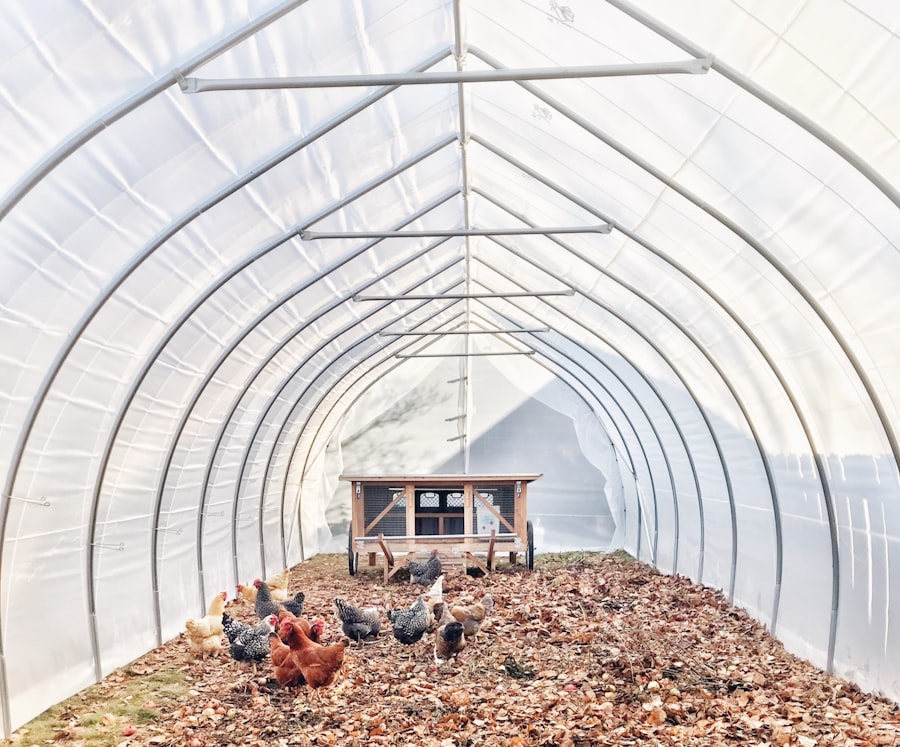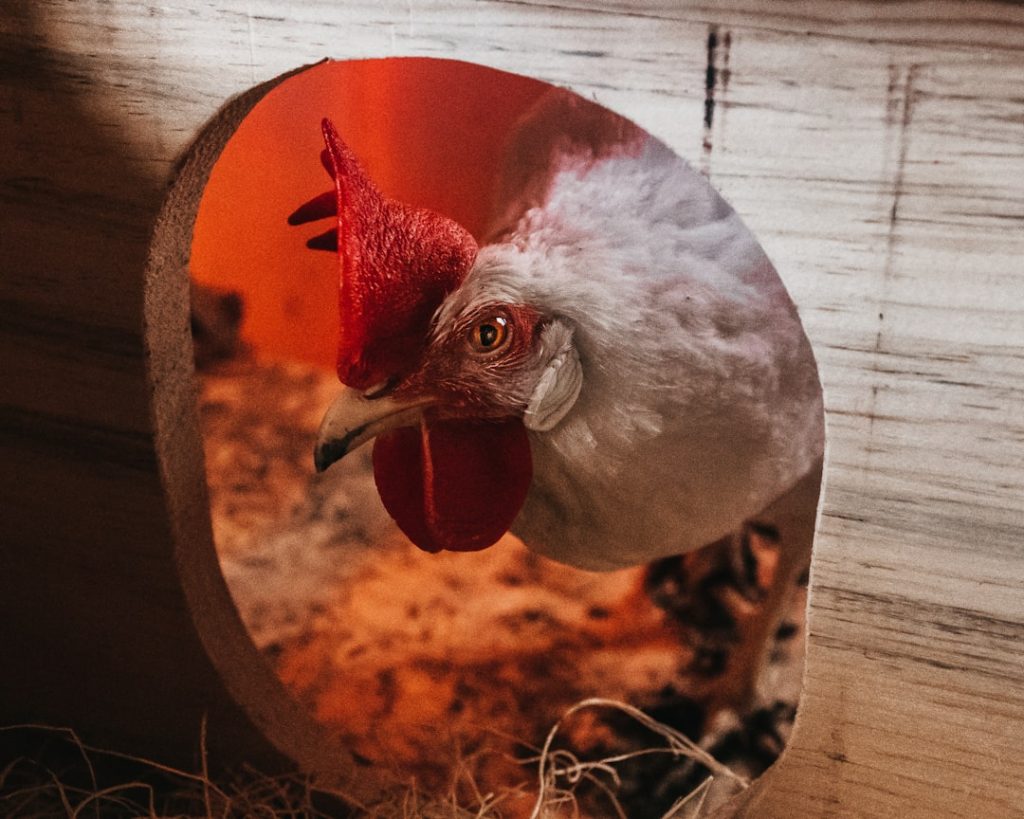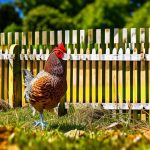When establishing a chicken coop, several initial setup costs must be considered. The primary expense is the coop or housing structure, which can range from a basic DIY project to a more sophisticated pre-fabricated unit. Essential accessories include nesting boxes, perches, and bedding materials to ensure a comfortable and secure environment for the chickens.
Additional setup costs encompass feeders, waterers, and fencing to create a protected outdoor area for the birds. The acquisition of chickens also contributes to the initial expenses. Whether opting for chicks or mature hens, costs will include the purchase price of the birds and potential shipping or transportation fees if obtained from a breeder or hatchery.
Feed and other supplies necessary for the chickens’ health and well-being represent further expenditures. It is crucial to carefully budget for these initial setup costs before embarking on chicken keeping, as the cumulative expenses can be significant. Proper financial planning ensures a successful start to raising chickens and helps avoid unexpected financial strain.
Table of Contents
Key Takeaways
- Initial setup costs for keeping chickens in New Zealand include purchasing a coop, fencing, and other necessary equipment.
- Housing and coop expenses may include the cost of building or purchasing a coop, as well as ongoing maintenance and repairs.
- Feeding and watering costs for chickens in New Zealand can include the price of feed, supplements, and waterers.
- Health and veterinary expenses may include the cost of vaccinations, medications, and potential vet visits for sick or injured chickens.
- Egg production and maintenance costs can include the price of collecting eggs, cleaning and storing them, and any additional maintenance for the coop and nesting boxes.
- Miscellaneous expenses for keeping chickens in New Zealand may include bedding, nesting materials, and other unexpected costs.
- Cost-saving tips for keeping chickens in New Zealand may include buying feed in bulk, using natural remedies for health issues, and DIY coop maintenance.
Housing and Coop Expenses
Bedding and Maintenance Costs
Once you have your initial setup in place, there are ongoing housing and coop expenses to consider. This includes the cost of bedding materials, such as straw or wood shavings, which will need to be replaced regularly to keep the coop clean and comfortable for your chickens. Additionally, you’ll need to budget for regular maintenance and repairs to the coop and fencing to ensure it remains secure and in good condition.
Heating and Insulation Expenses
Another ongoing expense related to housing is the cost of heating and lighting. In New Zealand, where temperatures can fluctuate throughout the year, it’s important to provide adequate heating during the colder months to keep your chickens comfortable. This may involve investing in heat lamps or other heating sources, as well as insulating the coop to retain warmth.
Lighting Expenses for Egg Production
Similarly, providing artificial lighting during the shorter days of winter can help maintain egg production in your flock. All of these housing and coop expenses should be factored into your overall budget for keeping chickens.
Feeding and Watering Costs

Feeding and watering costs are another significant expense when it comes to keeping chickens. The type of feed you choose for your flock will depend on their age, breed, and purpose (e.g., egg-laying hens versus meat birds). Additionally, some chicken keepers prefer to offer organic or non-GMO feed, which can be more expensive than conventional options.
You’ll also need to budget for treats and supplements, such as mealworms or oyster shell, to provide additional nutrition and enrichment for your chickens. In addition to feed, there are also ongoing costs associated with providing clean water for your flock. This may include the purchase of waterers and regular refilling or cleaning to ensure your chickens have access to fresh water at all times.
Depending on the size of your flock and your local climate, you may also need to consider heating elements or insulation to prevent water from freezing during the winter months. All of these feeding and watering costs should be taken into account when planning your chicken keeping budget.
Health and Veterinary Expenses
Just like any other pets or livestock, chickens require regular health care and veterinary attention. This includes the cost of vaccinations and preventative treatments to protect your flock from common diseases and parasites. Additionally, you’ll need to budget for occasional veterinary visits if any of your chickens become ill or injured.
In some cases, you may also need to invest in medications or supplements to support the health and well-being of your birds. Another aspect of health and veterinary expenses is the cost of maintaining a first aid kit and other supplies for basic medical care. This may include items such as wound care products, vitamins and electrolytes, and tools for trimming beaks and nails.
By being proactive about your chickens’ health, you can help prevent more serious issues that could result in higher veterinary costs down the line.
Egg Production and Maintenance Costs
If you’re keeping chickens for their eggs, there are additional costs associated with egg production and maintenance. This includes the ongoing expense of providing nesting boxes with clean bedding for your hens to lay their eggs. You’ll also need to budget for egg collection and cleaning supplies, such as egg baskets and sanitizing products, to ensure that your eggs are safe for consumption.
In addition to these direct egg production costs, there are also maintenance expenses related to keeping your hens healthy and productive. This may include the cost of calcium supplements to support strong eggshells, as well as regular inspections for signs of reproductive issues or egg binding. By staying on top of these maintenance costs, you can help ensure a consistent supply of high-quality eggs from your flock.
Miscellaneous Expenses

Regulatory Compliance
One such cost is obtaining any necessary permits or licenses to keep poultry in your area. It’s essential to research and comply with local regulations to avoid any potential fines or penalties.
Waste Management
Another expense to consider is waste disposal and composting. If you’re managing chicken manure on your property, you’ll need to budget for the necessary equipment and materials to handle this task effectively.
Ongoing Education and Support
Finally, it’s essential to invest in ongoing education and training to improve your skills as a chicken keeper. This may involve purchasing books or online courses, attending workshops, or joining local poultry clubs for networking and support. By doing so, you can provide the best possible care for your flock and stay up-to-date with the latest best practices in chicken keeping.
Cost-Saving Tips for Keeping Chickens in New Zealand
While there are certainly expenses associated with keeping chickens, there are also several ways to save money and reduce costs along the way. One cost-saving tip is to consider building your own coop or housing rather than purchasing a pre-made structure. By using reclaimed materials or repurposing existing structures on your property, you can save on construction costs while still providing a safe and comfortable home for your chickens.
Another way to save money is by sourcing feed and supplies in bulk or from local suppliers. Buying larger quantities of feed can often result in lower per-unit costs, and purchasing from local farmers or co-ops can help support the community while saving on transportation fees. Additionally, consider growing your own chicken feed or incorporating kitchen scraps and garden surplus into your flock’s diet as a cost-effective alternative.
Finally, consider implementing sustainable practices that can save money in the long run. This may include setting up a composting system for chicken waste and yard debris, which can then be used to fertilize gardens or pasture areas. Similarly, investing in renewable energy sources such as solar power for lighting or heating can help reduce ongoing utility costs associated with chicken keeping.
In conclusion, while there are certainly expenses involved in keeping chickens in New Zealand, careful planning and strategic decision-making can help minimize costs while still providing a high standard of care for your flock. By considering all aspects of chicken keeping expenses and exploring cost-saving opportunities, you can create a budget that works for you while enjoying the many benefits of raising chickens on your property.
If you’re considering keeping chickens in New Zealand, you may also be interested in learning about how many eggs geese lay. Poultry Wizard has a helpful article on this topic, which you can read here. Understanding the egg-laying habits of geese can provide valuable insight for those interested in poultry farming.
FAQs
What are the initial costs of keeping chickens in NZ?
The initial costs of keeping chickens in NZ include purchasing a chicken coop, feeders, waterers, and the chickens themselves. Additionally, there may be costs associated with setting up a secure outdoor area for the chickens to roam.
What are the ongoing costs of keeping chickens in NZ?
The ongoing costs of keeping chickens in NZ include purchasing chicken feed, bedding material, and any necessary medical care for the chickens. There may also be costs associated with replacing or repairing equipment as needed.
How much does chicken feed cost in NZ?
The cost of chicken feed in NZ can vary depending on the type and quality of feed. On average, a 20kg bag of chicken feed can cost between $20 to $30 NZD.
Are there any other expenses to consider when keeping chickens in NZ?
Other expenses to consider when keeping chickens in NZ may include the cost of obtaining any necessary permits or licenses, as well as the cost of predator-proofing the chicken coop and outdoor area.
What are the potential cost savings of keeping chickens in NZ?
Keeping chickens in NZ can potentially lead to cost savings on eggs, as well as the benefit of having access to fresh, organic eggs. Additionally, chickens can help with pest control in the garden, potentially reducing the need for chemical pesticides.
Meet Walter, the feathered-friend fanatic of Florida! Nestled in the sunshine state, Walter struts through life with his feathered companions, clucking his way to happiness. With a coop that’s fancier than a five-star hotel, he’s the Don Juan of the chicken world. When he’s not teaching his hens to do the cha-cha, you’ll find him in a heated debate with his prized rooster, Sir Clucks-a-Lot. Walter’s poultry passion is no yolk; he’s the sunny-side-up guy you never knew you needed in your flock of friends!







